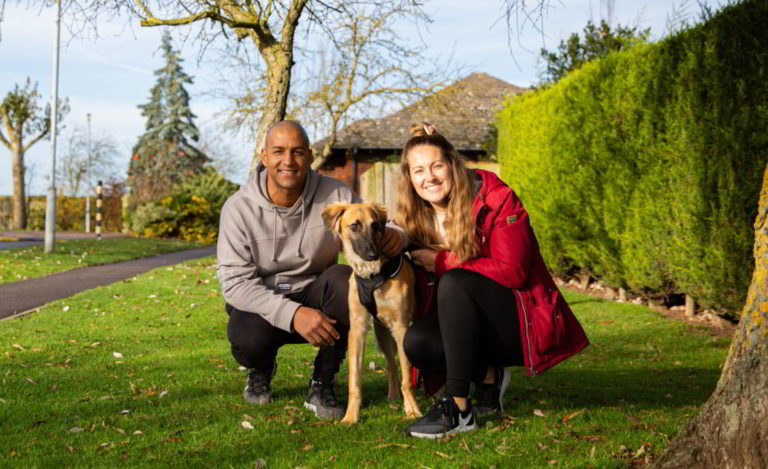When it comes to pets, we've all got questions
Ever feel like your pet is from another planet?

We want to help people find the right puppy for them, so more pets stay well cared for and in loving homes for life.
Puppies can make a wonderful addition to the family, but they take a lot of hard work, dedication and training to become a well-rounded adult. Make sure you have the time and patience for a puppy. If you think an older dog would suit you better, read our guide to getting an older dog.
Also, read our guide on what to think about before you get a dog to find out more about your duties as a pet owner and the costs of getting a puppy.
It’s important not to rush your decision to get a puppy or your search for one. Here are some tips on how to make an informed choice.
Dogs are put into our care every day, including puppies from eight weeks old. Apply to adopt a dog here. We receive many requests for puppies, but if we’re able to match a puppy with you, then Woodgreen will:
Woodgreen are a member of the Association of Dogs and Cats Homes members website. You can find other dog rehoming organisations there, as well as on the Kennel Club’s ‘Find a Rescue Dog’ website.
Buy your puppy from a knowledgeable, reputable breeder or organization to make sure they’re happy and healthy. Use the Kennel Club’s ‘Find a puppy’ search to find registered breeders. Ideally, you want a Kennel Club Assured Breeder who’s committed to a scheme for responsible breeding. They will give you a record of the puppy’s birth and lineage, and will have been thoroughly checked by the Kennel Club.
From the 6 April 2020, Lucy’s Law came into practice, which bans the third-party selling of puppies under 6-months old.
Under The Animal Welfare (Licensing of Activities Involving Animals) England Regulations 2018, professional dog breeders need a license. So when you approach a breeder or organisation, check:
Scotland, Northern Ireland and Wales have their own regulations, so make sure you research them if you’re getting a dog in those areas.
Genuine sellers and breeders know all about their dog breed. Don’t be afraid to ask questions – they will be happy to tell you what you need to know. Genuine sellers or breeders will also:
There are various signs that can help you decide if the seller or breeder is not responsible and trustworthy. For example, if:
Be extremely careful who you buy from. There are people are genuinely trying to find their puppies loving new homes, but many others are not. Some advertisers are less honest, and are just looking to make money.
Buying online increases the risk of buying from a puppy farm. Puppies from puppy farms often have severe mental and physical problems because they’re bred for profit not health or temperament. The puppies are often taken away from their mother too early and haven’t really been socialised. This can lead to behavioural problems later in life.
There are also many internet scams. For example, people asking for money for couriers or deposits upfront when you haven’t yet seen the dog – which might not even exist. So check all the details thoroughly, and do not part with any money until you have your puppy and its paperwork.
If you’re going to use the internet to help you find a puppy, look for websites that follow the Defra-endorsed minimum standards set by the Pet Advertising Advisory Group. These include:
If you see an advert from an “Assured Breeder” in a newspaper or on a website, search for their name on the Kennel Club database. You need to check they’re a registered breeder before you do anything else.
Make sure you get a healthy, happy puppy. Look out for:
You don’t have to decide to take the puppy there and then. If you have concerns, say you have other dogs to meet before you decide. If you’re worried about the puppy’s health it’s best to look for another puppy.
Take this list of questions with you when you go to see a puppy, so you can get all the information you need:
If you have any questions about getting a puppy, who to buy from, or the information you’ve been given about a puppy, contact us. We’re here to help. For extra information about getting a puppy, go to:

If you’ve been considering adopting a rescue dog, you’ll be pleased to know that applications for Channel 4’s The Dog House are now open!
If you’re interested and would be willing to share your rehoming journey on TV, apply now. As always, we will match our dogs with owners who can give them everything they need to live a happy life.